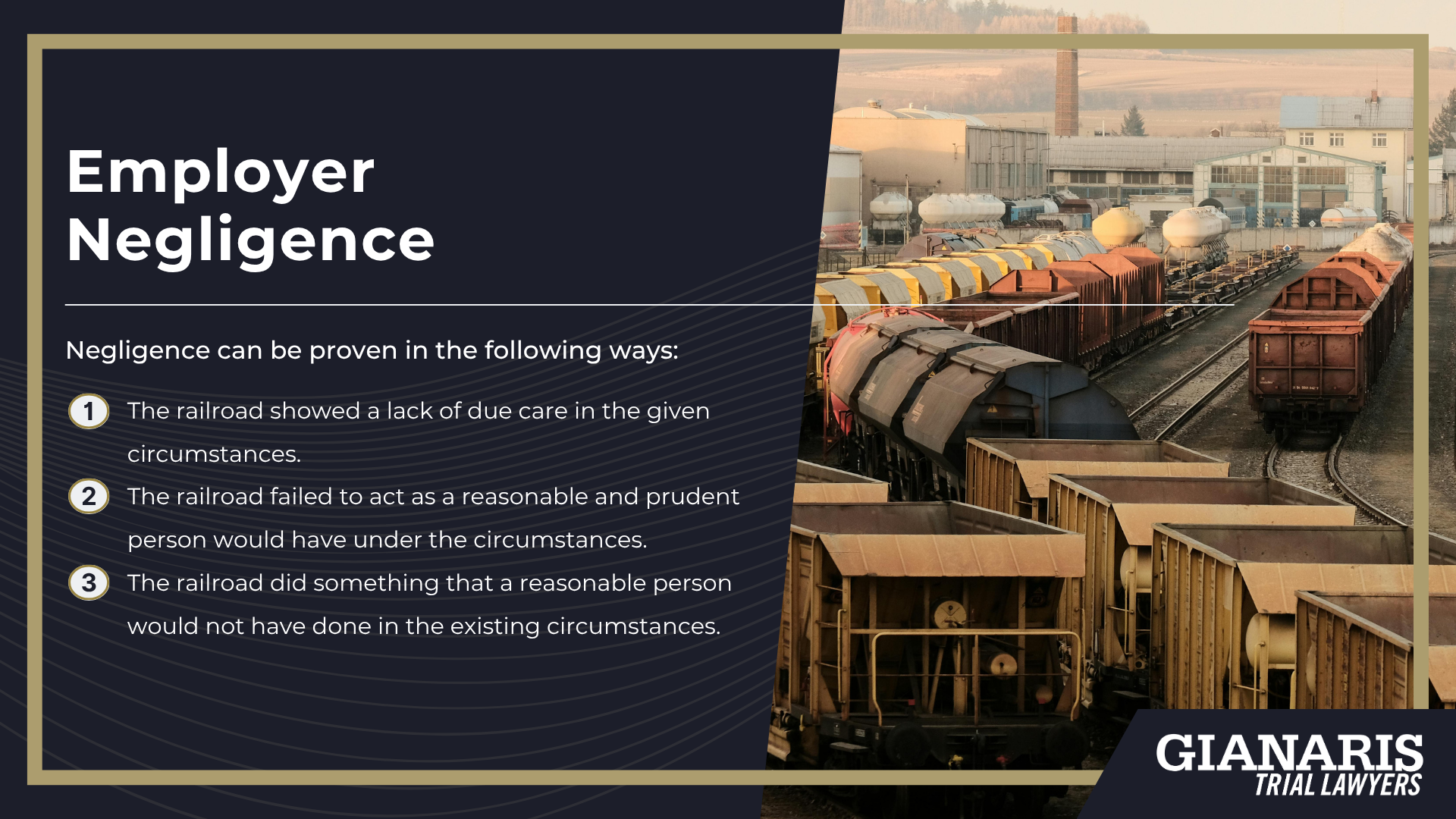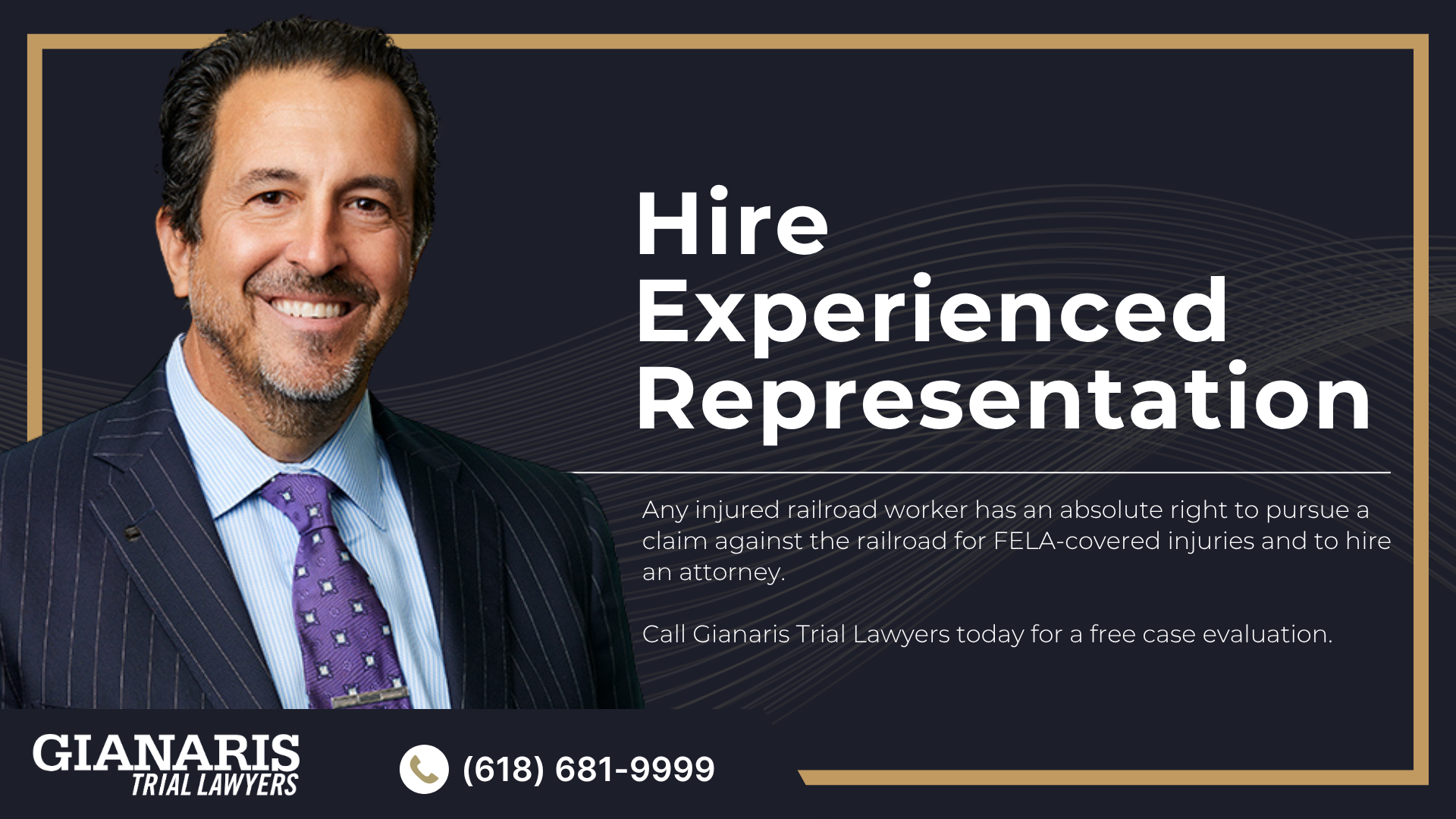FELA applies to both railroads and their employees due to the rail industry’s failure to establish safety measures.
If a railroad employee gets injured while on the job, they must demonstrate that the carrier was negligent or at fault in some way.
It is the carrier’s duty to provide a safe working environment, and this responsibility cannot be transferred.
In other words, the carrier must ensure the employee’s safety at all times, even when working at an industry or another railroad.

Negligence can be proven in the following ways:
- The railroad showed a lack of due care in the given circumstances.
- The railroad failed to act as a reasonable and prudent person would have under the circumstances.
- The railroad did something that a reasonable person would not have done in the existing circumstances.
The carrier is obligated to provide safe tools, equipment, and proper training for their use.
Past unsafe work practices cannot be used as an excuse for an employee’s injury. If a safer method of performing a job was available, the carrier may be held liable.
It is necessary for an injured employee to establish that the carrier was partly at fault to have a valid claim.
If there’s uncertainty about the validity of a claim, it is advisable to contact Gianaris Trial Lawyers as soon as possible, so that an attorney can discuss the situation.
Employer’s Duties
Employers covered by FELA have an absolute duty to provide a safe workplace.
However, the definition of “safe” may need to be determined by a jury.
Mere occurrence of an accident does not automatically indicate that the railroad failed to ensure a safe working environment.
It is crucial for any employee involved in an accident to report it immediately.
It is equally important to identify negligence or defective tools/equipment that contributed to the accident or injury on the appropriate accident report form provided by the carrier.
Keep a Record
Gathering information is of utmost importance because facts often transform into evidence.
It’s essential to note who was present at the accident site, observe any irregularities, and take note of the condition of tools or equipment.
Record the time, date, and collect names and contact information of witnesses.
As soon as possible, try to recall the accident and ask yourself questions about the injury.
Were you adequately trained for the task? Did you have sufficient help?
Were your tools and supplies in proper working order?
Was the footing safe? Were there any previous complaints to supervisors about the way a task was assigned?
Keep in mind that the burden of proof lies with the employee, and it is necessary to demonstrate that the carrier’s negligence caused at least part of the injury to have a valid claim.
Before completing the carrier’s accident report, try to have these details in mind.
Statute of Limitations
The statute of limitations for a FELA-covered injury is three years from the date of the injury.
In the case of occupational diseases where the date of injury is uncertain, the statute may start when the disease’s effects are discovered and related to job experience.
It’s important not to wait until the statute of limitations is nearly expired before processing a claim.
The carrier begins building its case against the employee as soon as the injury is reported.
Therefore, seeking advice from an attorney is crucial as soon as possible.






